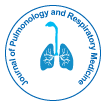Nosso grupo organiza mais de 3.000 Séries de conferências Eventos todos os anos nos EUA, Europa e outros países. Ásia com o apoio de mais 1.000 Sociedades e publica mais de 700 Acesso aberto Periódicos que contém mais de 50.000 personalidades eminentes, cientistas de renome como membros do conselho editorial.
Periódicos de acesso aberto ganhando mais leitores e citações
700 periódicos e 15 milhões de leitores Cada periódico está obtendo mais de 25.000 leitores
Indexado em
- ICMJE
Links Úteis
Diários de acesso aberto
Compartilhe esta página
Abstrato
Portuguese Family Drug Education's Respiratory Drug Class: A Delphi Research
Abdullah Al-Shamrani
Background: Respiratory conditions (RD) constitute a significant part of the workload of family croakers. There's no agreement on what family croakers should know in this area but established styles for achieving agreement may help to overcome this.
Objects: The purpose of the study was to gain a public agreement on the needed knowledge and chops in respiratory drug for family drug trainees after vocational training.
Methods: A Delphi study was conducted via e-mail with a different panel of experts. We developed a Learning Curriculum Framework (LCF) with 399 particulars acclimated from the Royal Australasian College of Physicians — Respiratory Medicine Advanced Training Curriculum. The LCF was submitted to the experts in two rounds for agreement. Consensus was considered for particulars that had an agreement of 80 in the groups above 4 on a scale of significance that ranged from 1(not important) to 5(veritably important).
Results: Consensus was attained for 159 particulars (38.8). These included structure and function of the respiratory tract(0.6), presenting problems(21.4), opinion(7.5), interventions and forestalment(11.3), COPDemphysema( 12.6), tumours(3.1), infections(10.7), tuberculosis(5.7), HIV(1.3), thromboembolic complaint(2.5), pleural- pulmonary complaint(3.1), gestation(0.6) and sleep diseases(3.8). Particulars on iatrogenic conditions and respiratory exploration didn't reach agreement.
Conclusions: Consensus on the respiratory drug class may contribute to farther development of the vocational training class in Portugal. This approach may help preceptors in other countries in Europe to develop classes for respiratory drug and other areas of general practice.
Diários por Assunto
- Agro e Aquicultura
- Alimentação e Nutrição
- Bioquímica
- Ciência da Computação
- Ciência de materiais
- Ciencias ambientais
- Ciências Clínicas
- Ciências Farmacêuticas
- Ciências gerais
- Ciências Médicas
- Ciências Sociais e Políticas
- Ciências veterinarias
- Economia e Contabilidade
- Enfermagem e cuidados de saúde
- Engenharia
- Engenheiro químico
- Física
- Genética e Biologia Molecular
- Geologia e Ciências da Terra
- Gestão de negócios
- Imunologia e Microbiologia
- Informática
- Matemática
- Química
Revistas clínicas e médicas
- Anestesiologia
- Assistência médica
- Biologia molecular
- Cardiologia
- Cirurgia
- Dermatologia
- Diabetes e Endocrinologia
- Doenças infecciosas
- Enfermagem
- Fisioterapia e Reabilitação
- Gastroenterologia
- Genética
- Hematologia
- Imunologia
- Medicamento
- Medicina Reprodutiva
- Microbiologia
- Nefrologia
- Neurologia
- Odontologia
- Oftalmologia
- Oncologia
- Ortopedia
- Pediatria
- Pesquisa Clinica
- Pneumologia
- Psiquiatria
- Toxicologia

 English
English  Spanish
Spanish  Chinese
Chinese  Russian
Russian  German
German  French
French  Japanese
Japanese  Hindi
Hindi